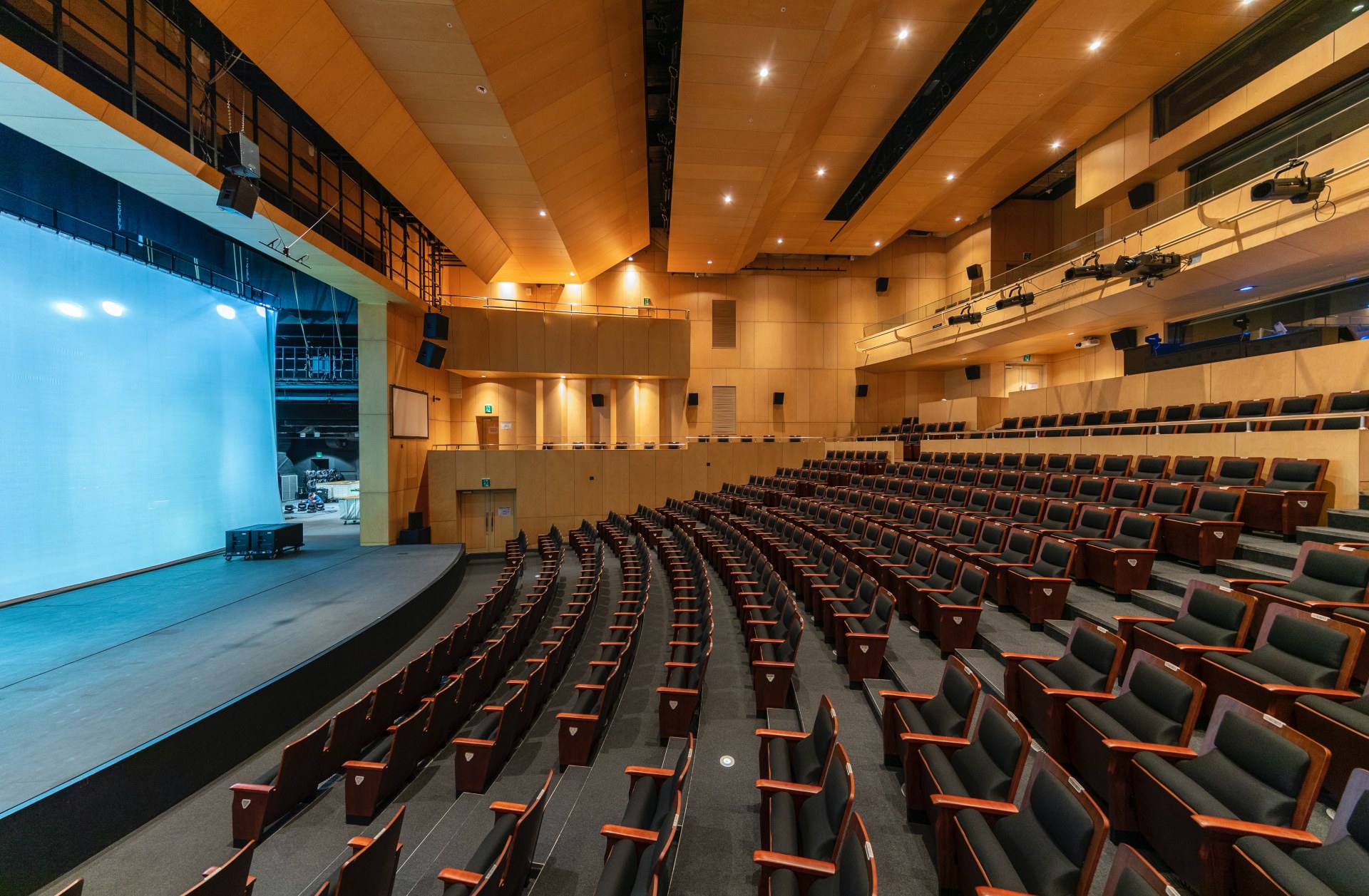
When we get the chance to see our favorite musicians perform in a concert hall, we know we’re in for a real treat. That’s because concert halls usually sound a whole lot better than large stadiums or smaller venues. Concert halls were designed for music.
The superior sound is partly due to the room shape and partly due to the fact that concert halls are acoustically treated for great sound. So, why are acoustic panels used in concert halls if so many auditorium shapes are already conducive to great sound? Understanding how sound waves work is key in answering that question.
Acoustic Panels Cut the Noise
Just as a weed is simply an unwanted plant, a noise is simply an unwanted sound. We don’t consider music to be noise, but the neighbor mowing the lawn at 10 pm would definitely fit the bill. It doesn’t even have to be something that loud. A nearby person chomping gum or clicking their pen are much quieter sounds but no less distracting. Acoustical treatment boils down to separating what we want to hear from what we don’t want to hear.
What Common Noises do Acoustic Panels Address?
There are a number of pretty common audio issues that can cause chaos in our music venues, and most can be reduced or eliminated with acoustic panels. Why are acoustic panels used in concert halls? Here are the big issues we solve with acoustic panels.
Echo
Most of us have been familiar with the concept of echo since someone demonstrated it to us as kids. When we yell or clap into a large space with hard sides, the sound waves traverse the space, impact the hard surface on the other side, and reflect back to you. It’s cool when you want to hear the effect but less cool when you don’t.
So why are acoustic panels used in concert halls to address echo? In music venues, we don’t want to hear reflections mixing with the music as it is performed. Acoustic panels reduce echo by absorbing a lot of the reflections that cause it.
Flutter Echo
If you’ve got parallel side walls, such as in a shoebox style concert hall, the space can be prone to flutter echo if not acoustically treated. Flutter echoes show up when we have two parallel walls that reflect sound waves back and forth, trapping the sound energy in the middle.
The effect of a flutter echo is that we hear distinct echoes repeatedly as the reflections bounce back and forth. It can sound like fluttering, which is where the name comes from. If you want to tame flutter echoes in your space, a mixture of acoustic panels and sound diffusers on your side walls will redirect and trap audio reflections so they can’t continually bounce back and forth.
Reverberation
Reverberation, or reverb, is another audio phenomenon created by sound waves bouncing off hard surfaces. When sound waves are allowed to repeatedly reflect and travel across a room, the buildup of sound waves in the space causes them to become louder. So, why are acoustic panels used in concert halls to address reverb?
When reverb gets out of hand in a concert hall, it can be much harder for the audience to hear the music properly. When rooms get louder, people get louder to compensate. That’s a recipe for disaster in any type of music venue. Acoustic panels absorb sound waves at the reflection points and keep reverb down.
Noisy Audience Members
When we fill an auditorium with hundreds or thousands of people, it’s a tall task to get everyone to keep completely quiet. The reality is that people will shift in their seats, drop items on the floor, and chat with their friends about the performance. Not only that, but some will likely get up to use the bathroom or grab drinks a few times.
Even in an acoustically perfect room, unplanned sounds can take away from the beautiful music. In order to keep those sounds from becoming distracting, we utilize carpeting on the floors and acoustic panels on the walls and ceilings. The more of those sounds we can absorb quickly, the less they will be heard by the musicians and other audience members.
When we acoustically treat a space, we do so to reduce the prevalence of the sounds we don’t want to hear. So, why are acoustic panels used in concert halls? Things like echo, reverberation, and chatty audience members are not part of the performance, and if they get too distracting, they have the ability to ruin an otherwise stellar spectacle. Let’s look at how they can be used in the space to reduce these nuisance noises.
Why are Acoustic Panels Used in Concert Halls?
Now that we know what kinds of problematic noises we encounter in the world of concert halls, we’re ready to see how treating the space with acoustic panels helps deliver great sound.
Hard Surfaces vs. Soft Surfaces
The way a sound wave reacts when it comes into contact with a surface depends upon what type of surface it is. So, what material reflects sound the best, and what material reflects sound the least? The answer comes down to how hard or soft the material is, as well as how smooth or porous the surface is.
When sound waves come into contact with hard, smooth surfaces, they reflect back into the room. As we covered a little earlier, this can cause echo and reverberation, but hard surfaces are essential parts of delivering a full sound for concerts. Completely eliminate them, and your room will sound dead.
When sound waves reach soft, porous surfaces like acoustic panels, some waves are reflected, but a good deal of them are absorbed into that material. Since those sound waves are the reason the audience is in attendance in the first place, people find themselves asking, why are soft materials used in auditoriums at all? The answer is simple. Softer surfaces properly positioned in a space allows for some reverberation and echo but keeps them under control. This combination helps provide a much fuller sound.
Why are acoustic panels used in concert halls? They help create a balance between hard surfaces and soft surfaces.
High Ceilings
It’s a part of concert venue design that’s required for great sound but can cause issues if left untreated. High ceilings in concert halls allow early reflections to reach the audience before they get lost in the reverberation, but the empty space overhead also creates room for that reverberation to build up.
Many high end venues suspend acoustic panels from the concert hall ceiling to create eye-catching ceiling cloud designs that reduce reverberation. Suspending acoustic panels into the room allows many of the mid and high frequency sound waves to be absorbed as they travel across the room, reducing the amount of ambient sound in the room. Acoustic ceiling treatments look great and make it easier for the audience to hear every nuance of the performance they came to experience.
Room Shape
While many auditoriums and concert halls are designed to create an ideal atmosphere for sound to thrive, not all were created with physics in mind. If your concert hall has a shape that isn’t great for sound, you’ll need to expend a little more energy incorporating acoustic design principles than you would if you were dealing with a theater with fewer issues.
Since some rooms are laid out better than others, why are acoustic panels used in concert halls that were designed and built for their superior acoustics? It’s because even the most ideally shaped room is built out of reflective materials and benefits from acoustical treatment.
They Look Great
Not only do acoustic panels make your room sound great, but they look great too. Fabric wrapped acoustic panels can be wrapped in a number of different fabric types and colors and can even be printed with any design you can dream up. The visual aesthetic is as much a part of the concert hall experience as the perfect acoustics, so choosing materials that accent your interior design scheme only adds to that experience.
They Keep the Neighbors Happy
Part of being a respectful music venue is keeping your neighbors happy. Live music can get loud, and a combination of acoustical treatments and soundproofing are necessary parts of keeping those sounds contained. Soundproofing music venues is much easier when you reduce the amount of sound you are contending with. Acoustic panels are a great way to turn the volume down a bit.
It All Comes Down to Placement
Now that we understand the answer to the question, why are acoustic panels used in concert halls, it’s time to put that knowledge into action. Acoustic soundproofing solutions in music venues are the differentiators that set apart our favorite venues from the venues that leave us wishing we had a better experience.
You can’t just throw up acoustic panels and hope for the best, though. Proper placement is required to provide all the great benefits of acoustic panels. Reach out to our team if you need help identifying the proper materials and placement that will set your concert hall above the rest.




